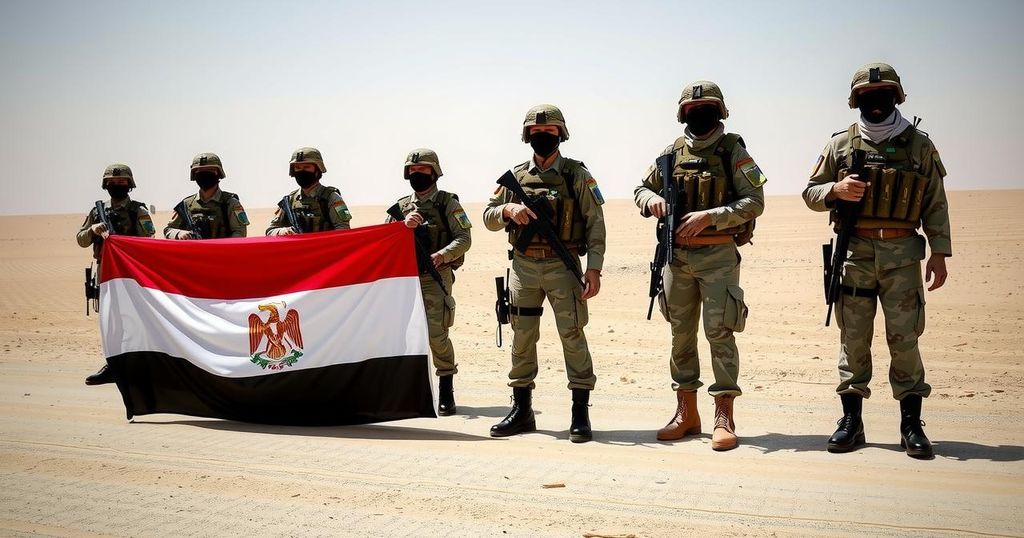Egypt has announced its participation in a new AU peacekeeping force in Somalia, responding to requests from the Somali government amid rising tensions with Ethiopia. This move comes as Ethiopia’s maritime agreement with Somaliland shifts regional alliances, with Egypt’s involvement seen as a support for Somalia’s sovereignty and stability against threats from Islamist insurgents.
On Monday, Egypt’s Foreign Minister Badr Abdelatty announced the nation’s commitment to participate in a newly established African Union (AU) peacekeeping force in Somalia. This decision comes in response to a request from the Somali government and the endorsement from the African Union Peace and Security Council. The announcement occurred during a joint press conference in Cairo alongside his Somali counterpart, Ahmed Moalim Fiqi. This initiative takes shape as tensions increase within the Horn of Africa, particularly following Ethiopia’s maritime agreement with the self-declared Somaliland region, which has bolstered Somalia’s relations with Egypt.
The formation of the African Union Support and Stabilization Mission in Somalia (AUSSOM) will succeed the current African Union Transition Mission in Somalia (ATMIS) at the end of this year. Minister Abdelatty underscored Egypt’s commitment to the sovereignty of Somalia, rejecting any measures that could compromise its unity or safety. The diplomatic landscape is evolving as a recent agreement brokered by Turkey has facilitated a resolution between Somalia and Ethiopia, a move welcomed by international entities including the African Union and the governments of Washington and Brussels. Despite early indications that Ethiopian troops would be excluded from the AU peacekeeping operation, Egypt’s participation is seen as a significant development.
Cairo’s involvement represents a strategic bid to strengthen its partnership with Somalia, reflected in a military cooperation agreement signed in August following a visit from Somali President Hassan Sheikh Mohamud. A recent regional summit that included Egypt, Eritrea, and Somalia has been interpreted as a collaborative effort aimed at sidelining Ethiopia. This regional dynamic is complicated by Cairo’s longstanding tensions with Addis Ababa, particularly regarding the contentious Grand Ethiopian Renaissance Dam, which Egypt perceives as a threat to its crucial water resources.
The Horn of Africa is a region marked by political instability and conflicts, particularly involving Ethiopia, Somalia, and the adjacent maritime territories. Ethiopia’s maritime deal with Somaliland heightened tensions, as it influences Somalia’s geopolitical alliances, drawing it closer to Egypt. The African Union plays a critical role in peacekeeping efforts in Somalia, where ongoing insurgencies led by the militant group Al-Shabaab pose significant security challenges. The transition from ATMIS to AUSSOM signals a renewed commitment to stability within the region amid these complex dynamics and shifting alliances, especially as Egypt seeks to fortify its influence in counterbalancing Ethiopian power in the area.
Egypt’s decision to join the AU peacekeeping force in Somalia highlights its strategic alignment with Somali interests against the backdrop of regional tensions, particularly with Ethiopia. The evolving partnerships and the establishment of AUSSOM illustrate ongoing efforts to stabilize Somalia while mitigating the influence of external threats. The collaboration between Egypt and Somalia signals a significant pivot in the Horn of Africa’s diplomatic landscape, reflecting both nations’ commitment to sovereignty and mutual security.
Original Source: www.barrons.com






